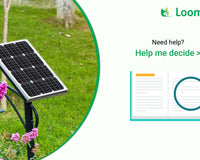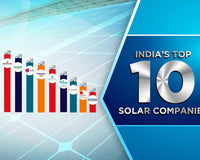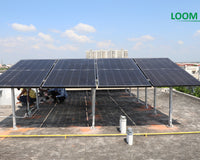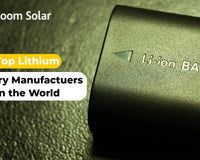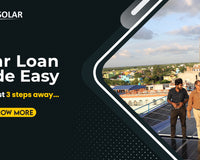Ever wondered, how to change the current solar panels and how different types of solar panels are connected, how they work with different components. In this article, we will talk about solar panels and their inverter battery and the available warranty plus other essential components all related to solar panels. Let’s now talk about the available options in the market to change the solar panels:
Consumer 1: 12 V Solar Panels (180 W Solar Panels)
Option A: If the consumer wants to change their existing solar panels; if the solar inverter warranty is completed and has expired then to change the solar inverter to a new 24 V (Volt) solar inverter is one of the best available options with the change another solar inverter battery is required to be installed with the solar inverter.
With the new change, the number of solar panels can be changed easily and as per the power generation requirement. With the selection of Option – A, then the 12 V solar panels or 24 V solar panels are available in the solar panel market. In Option – A, the installation will have a ‘series connection of 180 W (Watt) solar panels, which will require another solar panel of 12 V.
But in the current market, the option of 180 W solar panel is currently available but Loom Solar is providing 225 W solar panels in the 12 V option.
Option B: If the consumer does not want to change their existing solar inverter, then the consumer is required to purchase a 12 V solar panel, with that the consumer will not be able to add 600 W solar panels or more. To know more about the benefits / limitations of Option – A or Option – B, call our solar expert at 8750 – 77 – 8800.
Consumer 2: 24 V Solar Panels (375 W Solar Panels)
Option A: If the consumer wants to increase their number of solar panels to a maximum number for maximum power generation output, then you can check for the number of solar panels that can be installed with the existing solar inverter. Generally, 24 V solar inverter comes with 1,800 VA (Volt per Ampere), 2,050 VA, 2,500 VA or higher. You can add another 24 V solar panel, only.
If you add more number of solar panels without checking the solar inverter’s VoC rating, then the solar inverter will show the maximum PV voltage error. In this case, you will not be able to use your solar system.
Option B: If the consumer has some budget and wants to change their existing solar inverter to a higher voltage capacity of 24 V to 48 V, Option – B is available for the consumer. Generally, 48 V solar inverter comes with 3 kW (Kilowatt) and 5 kW capacity. In 3 kW and 5 kW capacity, the consumer is required to add two more solar batteries.
In this case, Loom Solar recommends adding a similar rating of solar batteries, if the solar batteries are connected of different ratings, then there is a chance that the solar cells of the batteries may get damaged. If the consumer selects Option – B, then the consumer can add 5 kW solar panels with the upgraded solar system.
Conclusion
We understand our consumers needs and wants, we also understand that the consumer wants to change or upgrade their solar panels / solar systems and its components. We recommend that whenever you upgrade your existing solar system, Loom Solar helps to provide all the cost-effective solutions. To know more about our available services, book a ‘Site Survey,’ where our engineer will visit your place and will perform all the necessary assessment and will provide with the proper available solutions.






